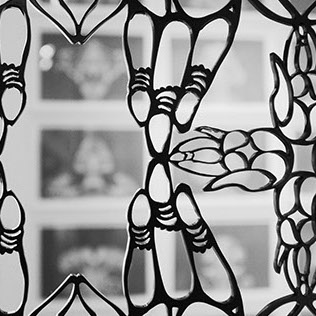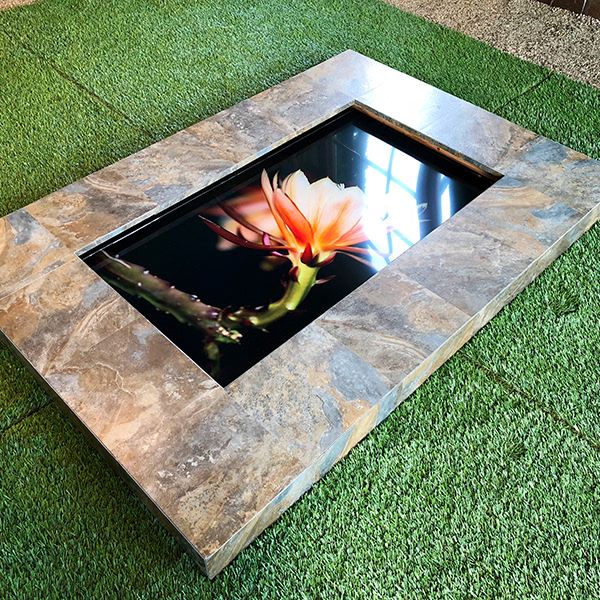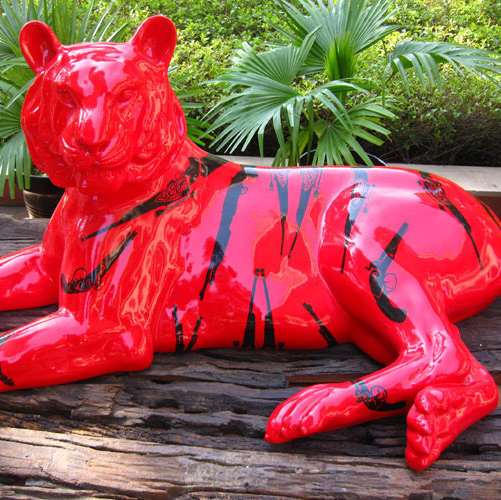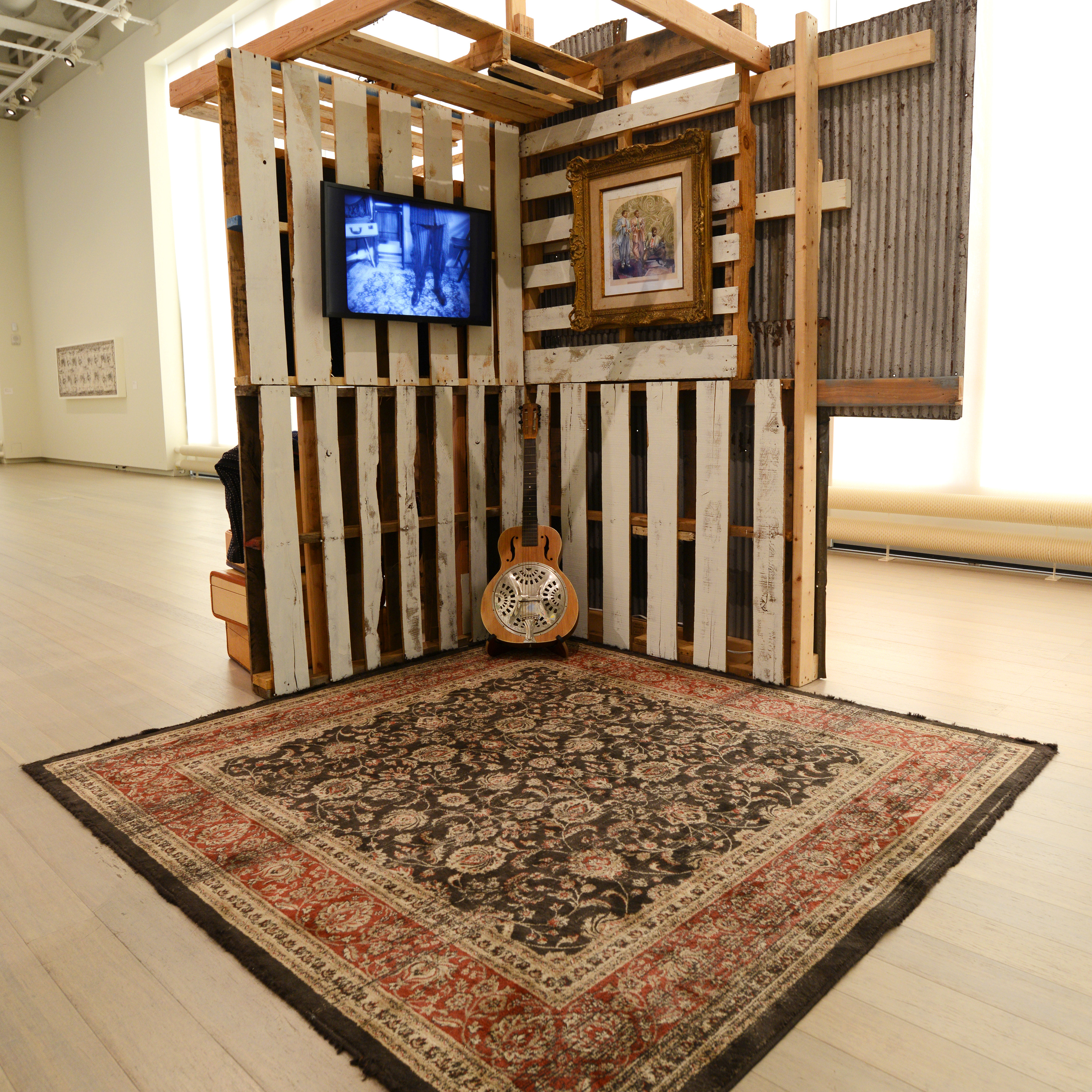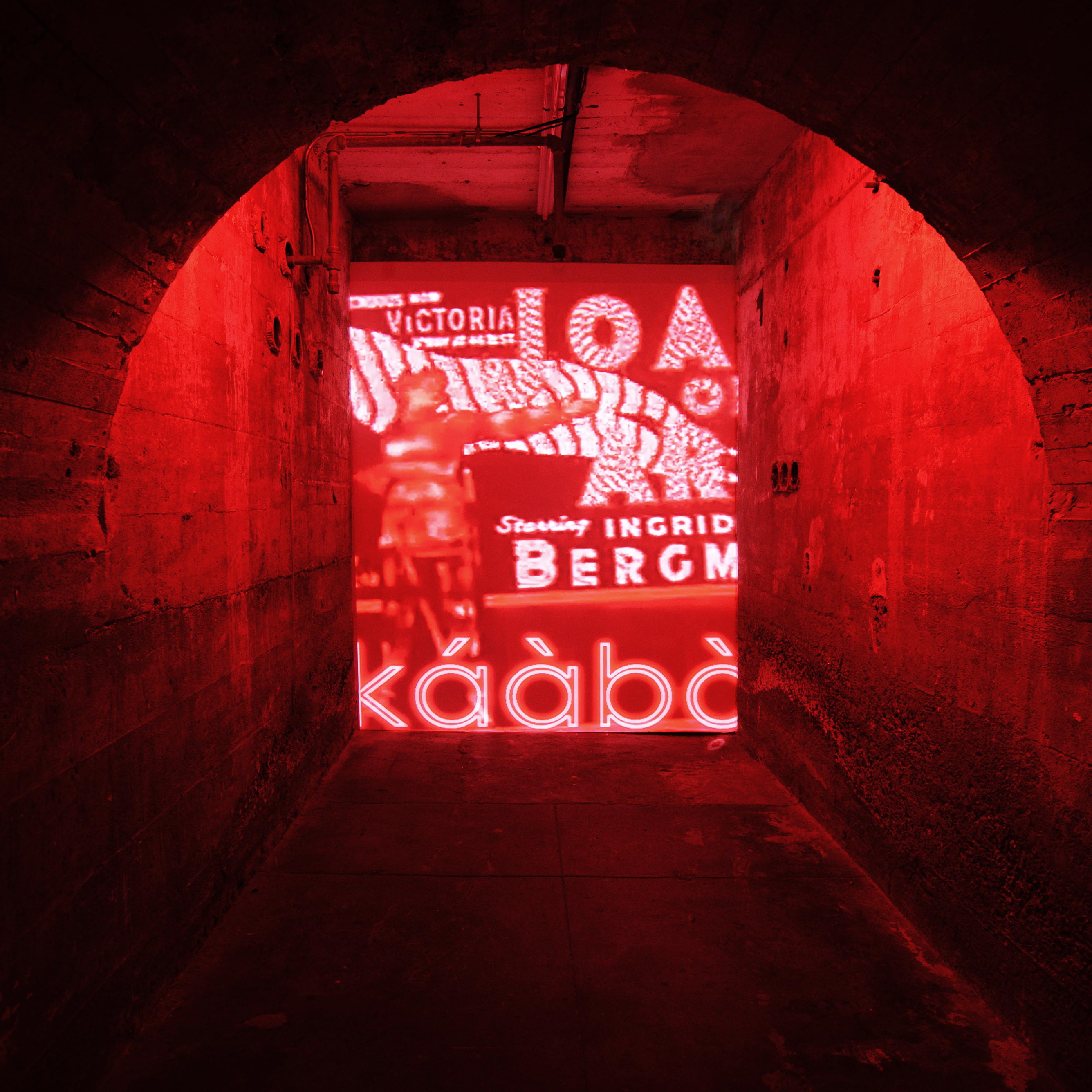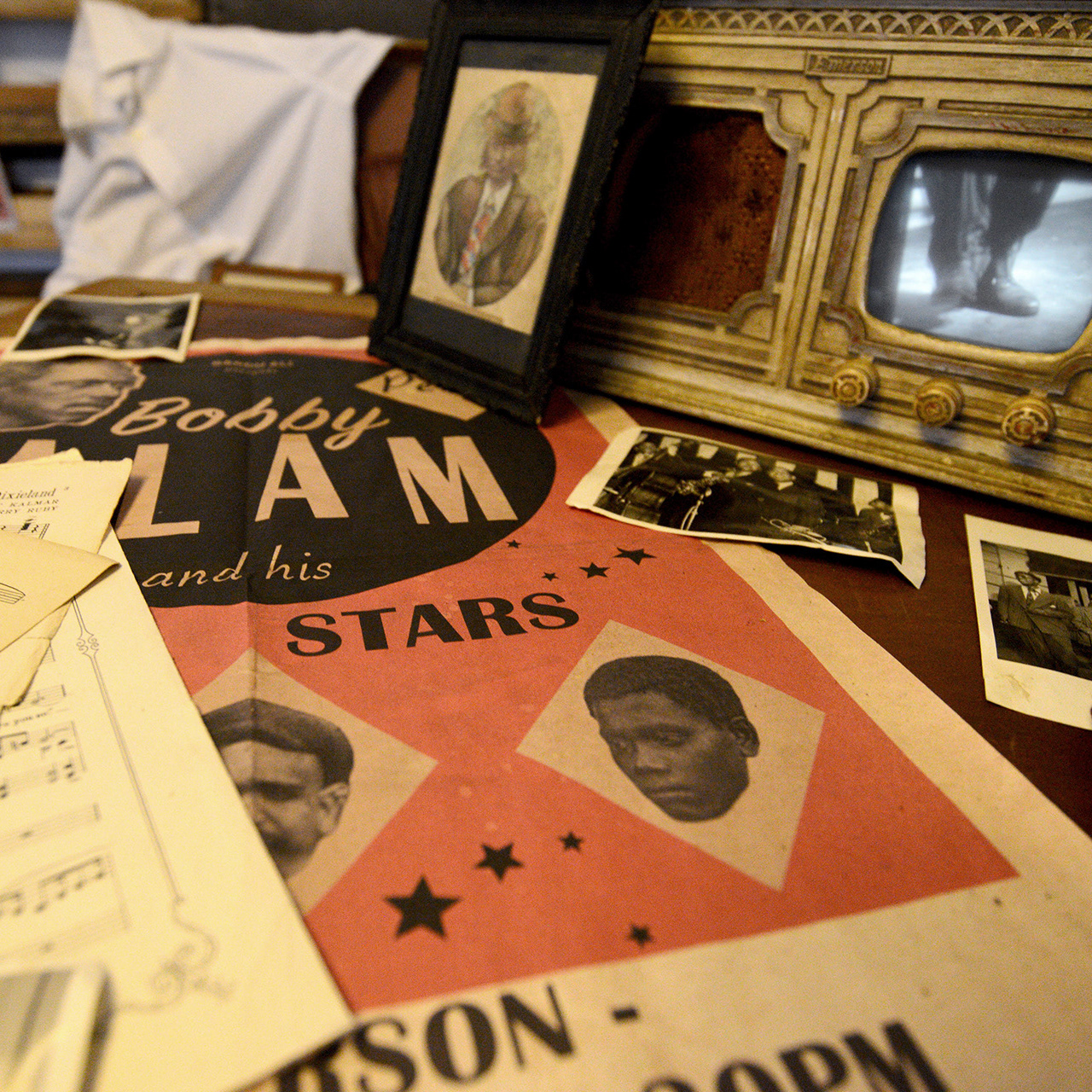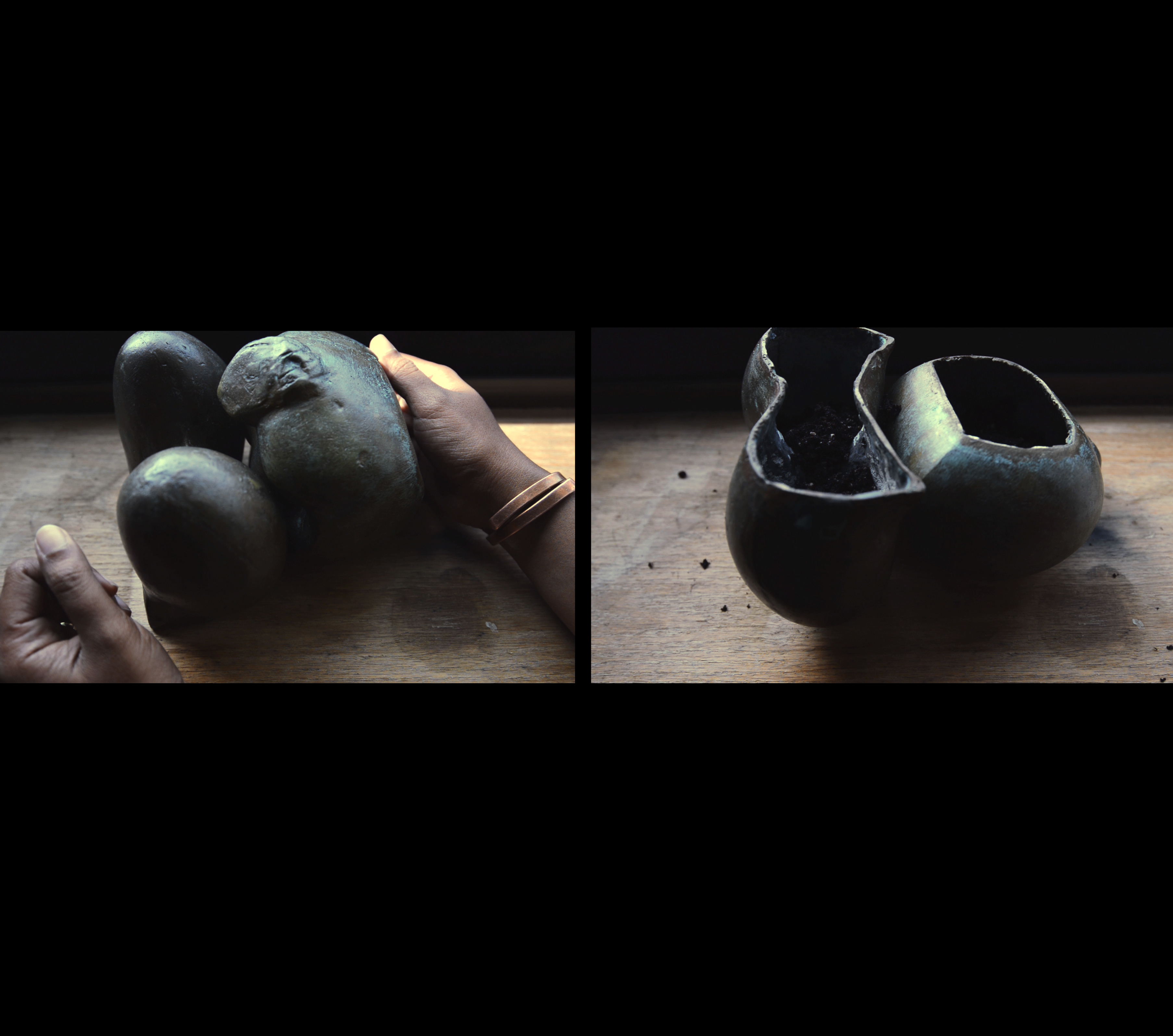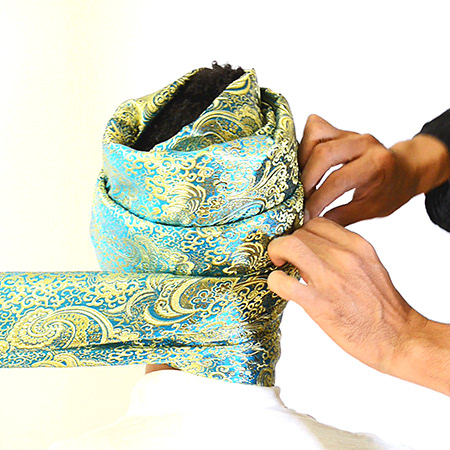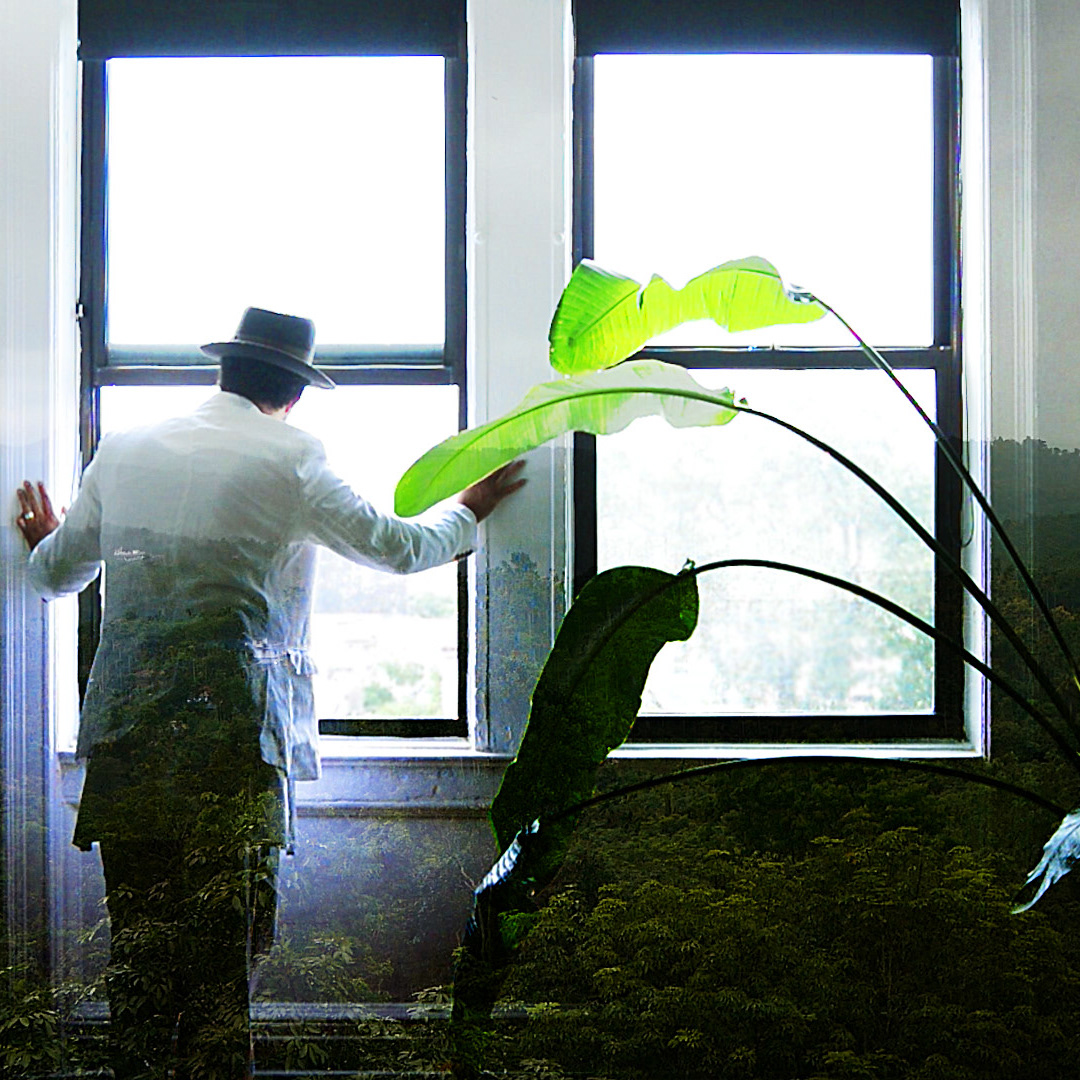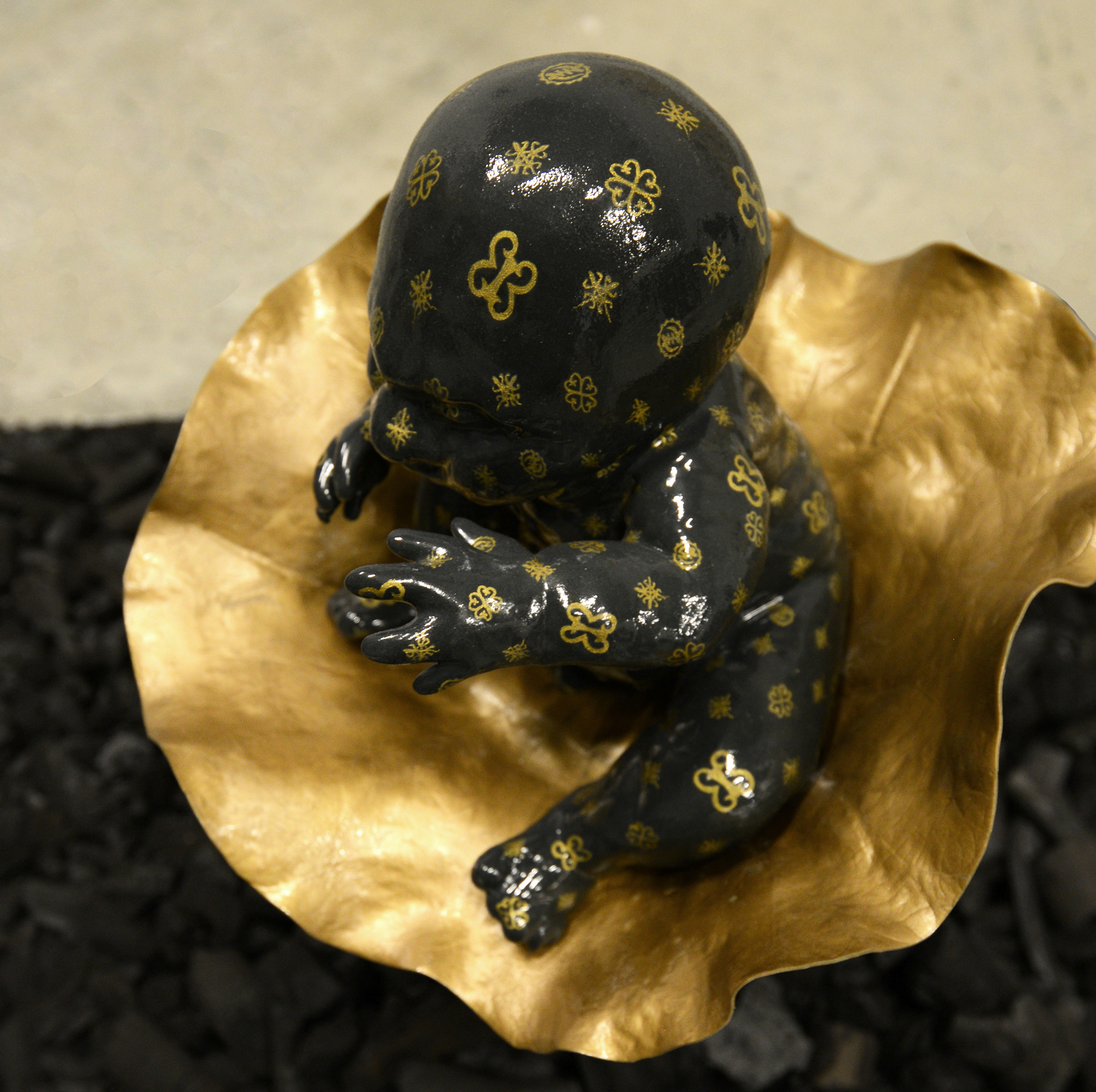2019
Site-specific installation
Dodd Galleries, Lamar Dodd School of Art, University of Georgia
Dodd Galleries, Lamar Dodd School of Art, University of Georgia
Curated by Courtney McClellan
Pigeonhole is a multidisciplinary portrait of Bahauddin (Bobby) Alam, a Bengali peddler and lascar, who migrated to the United States in the early twentieth century and lived as a Black jazz musician, in order to circumvent the Asiatic Barred Zone Act of 1917.
Conceived as a space within a space, the interior of the installation is Alam’s private backstage dressing room in a juke joint, where he would have spent many an evening constructing and perfecting his secret identity. The dressing room is arranged with objects that reflect Alam’s secret life, including memorabilia and recordings from his prolific music career. These include a zoot suit fashioned from “exotic” Indian textiles, like those some “passing Black” Bengalis would sell to support themselves, handbills and posters, musical compositions, moving image documentation from Alam’s performances and private recordings, as well as a large framed portrait and biography of the musician displayed at the entrance. Clues within these objects reveal the dual nature of Alam’s identity, and a subtle trespassing of the lines between reality and fiction.
While conceived as a celebration of Alam’s career and his ability to survive in the United States during an especially precarious time, Pigeonhole also asks its audience to consider the limitations of passing, and the self-stereotyping that invariably accompanies it: where one set of stereotypes or restricting signifiers (Indian peddler) are replaced by another (Black jazz musician). This critique is incorporated into the larger design of the installation, where a viewer’s first experience of the work is through a gridded window, which fragments the interior into a “pigeon coop.” The title further reinforces this restriction or compartmentalization.
